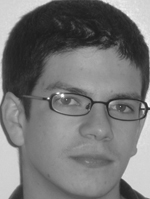Photo Freedom
Several years ago I was in New York for a couple of days, before heading on to the Stepford Wives world of Connecticut for a jazz workshop. Feeling for the first time that I was in a city more overwhelming, more unforgiving even than London, I wondered around in a touristic gaze snapping pictures of this and that.
As I was taking my umpteenth ‘Very Big Building’ picture, a burly NYPD officer came running over to me, shouting “Hey buddy, you gotta stop that. You cannot photograph this building.”
Dumbfounded by this act of public censorship and undone by my mouth’s tendency to intervene before my brain, I quipped “What, in the Land of the Free?” and spent the next ten minutes apologising profusely and demonstratively deleting pictures from my camera.
Despite my shock at this blatantly unnecessary measure, I could see why it happened.
This was New York just two years after 9/11. Tensions were still high and every street was adorned with more flags and policemen than you could shake a stick at. The cop was just doing his job in circumstances with which none of us had yet learned how to cope.
Five years later, it appears that the US authorities’ penchant for photo censorship has reached new levels.
The Associated Press has launched a complaint against the US military, after journalists claimed that soldiers had deleted footage of the aftermath of an attack in Afghanistan, in which three people were shot dead.
Jean-Francois Julliard, a spokesman for Reporters Without Borders put it simply, saying: “Why did the soldiers do it if they don't have anything to hide?"
With our knowledge of what happened at Abu Ghraib, as well as the recent conviction of US soldier Segreant Paul Cortez for the rape and murder of a young Iraqi girl and her family, alarm bells have to start clanging.
That Big Apple bobby may have been stretching a point, but at least he had a point. He was legitimately worried for the security of his home town. Overly zealous he may have been, but his motives seemed altruistic.
What has happened in Afghanistan should worry us just as much as the recent blogging censorship in Egypt. When an organisation chooses to censor the press, it is very rarely for the same reasons as my New York cop.
Unless an explanation is offered, and soon, we can only assume these soldiers had something sinister to hide.
Labels: afghanistan, AP, censorship, military, paul cortez, press freedom, US

